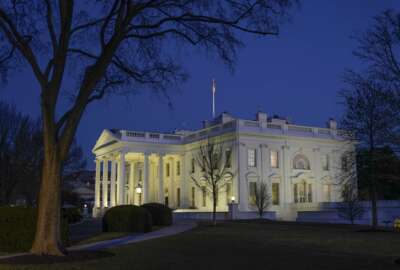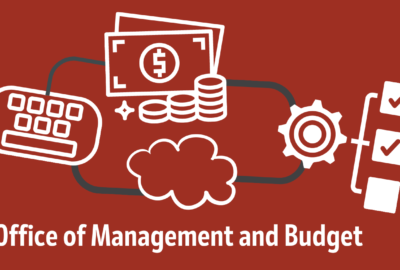National Secure Data Service takes shape as advisory committee drafts report to OMB
The Advisory Committee on Data for Evidence Building, in a meeting Friday, outlined its recommendations to create a National Secure Data Service, which would give...
A federal advisory committee is calling on Congress and the Biden administration to finish what lawmakers started in January 2019 when they passed the Evidence Act.
The Advisory Committee on Data for Evidence Building, in a meeting Friday, outlined its recommendations to create a National Secure Data Service (NSDS).
The committee, which advises the Office of Management and Budget on ways to facilitate data sharing while also keeping sensitive data private, will finalize its recommendations in a report due to OMB next month.
The National Secure Data Service would give vetted researchers access to sensitive government data for statistical purposes.
The Commission on Evidence-Based Policymaking urged Congress to create the NSDS as part of its final recommendations in 2017.
Lawmakers included many of the commission’s recommendations in the Foundations for Evidence-based Policymaking Act, but didn’t include any provision to create the NSDS.
But plans to create a secure data service within the National Science Foundation are gaining momentum in Congress.
Rep. Don Beyer (D-Va.) introduced the National Secure Data Service Act in May, which lawmakers then folded into the NSF for the Future Act. The House passed the reauthorization bill in June, but the legislation has yet to move ahead in the Senate.
ACDEB chairwoman Emilda Rivers, in reviewing a draft of the committee’s final report, said the NSDS could give agencies insight into some of the Biden administration’s priorities, including equity, the state of the workforce, and COVID-19.
The committee has until Oct. 29 to send its report to OMB. Aside from recommendations, the report will also provide an action plan for what the committee expects to accomplish next year.
Len Burman, a fellow at the Urban Institute’s Tax Policy Center and a professor of public affairs at Syracuse University, said many statistical resources already exist at the federal, state and local government level, but the data isn’t always available for research purposes.
The NSDS, he added, could help bridge some of those gaps, and facilitate greater use of the data.
“The key thing that the National Secure Data Service can do is it can provide a place where people can find all the data, or almost all the data. It can enhance access to the data in ways that preserve privacy,” Burman said.
The NSDS could more easily link interagency data sets together, but Burman said that would require Congress to pass legislation that would allow agencies to use data beyond their limited statutory authority.
Aside from standing up the NSDS, committee members also proposed ways to advance what Congress already authorized in the Evidence Act.
The ACDEB laws and regulations subcommittee is proposing OMB include specific requests for funding in the FY 2023 budget request to meet the goals of the Federal Data Strategy and the Evidence Act.
Christine Heflin, the director of performance excellence and the deputy performance improvement office at the Commerce Department, said a lack of full-time staffing at agencies for evaluation work means agencies often take longer than a year to grant researchers’ requests for data access.
“Right now, we have folks [and] the culture of their organization is the protection of data. We need some dedicated FTEs where they are there to facilitate research, facilitate the building of evidence,” Heflin said.
The subcommittee recommends OMB should take “immediate steps” to issue additional guidance and regulations outlined under the Evidence Act, including how agencies should meet statutory requirements to make data open by default and create data inventories.
The subcommittee also recommends that OMB work with the Chief Data Officer Council, the Federal Privacy Council and the Interagency Council on Statistical Policy to update model language for memos of understanding used to facilitate data sharing between agencies.
Christina Yancey, the Labor Department’s evaluation officer, said data accessibility between agencies remains a challenge without guidance from OMB on key sections of the Evidence Act.
“We have to take into account the fact that, in the implementation of the Evidence Act so far, things are moving at a pace that is concerning, and that part of it is because there aren’t sufficient resources,” Yancey said.
Barry Johnson, the IRS’ acting chief research and analytics officer and director of the IRS Statistics of Income Division, said OMB remains under-resourced to issue guidance any sooner than what it’s already doing.
“One of the reasons that these things are taking a long time is because a lot of work was dumped on OMB in the legislation and there were no resources to actually achieve that work,” Johnson said.
The subcommittee also recommends that OMB take “immediate steps” to designate a full-time chief statistician.
Nancy Potok served as the last permanent chief statistician but left in January 2020. Dominic Mancini now serves as the acting federal chief statistician.
Copyright © 2025 Federal News Network. All rights reserved. This website is not intended for users located within the European Economic Area.
Jory Heckman is a reporter at Federal News Network covering U.S. Postal Service, IRS, big data and technology issues.
Follow @jheckmanWFED






